If you’ve dreamed your whole sentient life of writing a book, the year your debut novel is slated to come out feels like a banner one, an epoch in your little life. Like melting Arctic permafrost freeing innumerable new pathogens, a host of novel anxieties were released in me; I will spare you a recounting, except to say that somewhere on the list of my many fears was this: that I would genuinely stop finding pleasure in books. I’d noticed a change descend subtly upon me in the year before this one, a sort of over-professionalizing of my reading eye, a heightened scrutiny that left me feeling uncharitable and curmudgeonly. I hated it. I’ve been writing for a long time, but for so much longer I’ve been a reader, and a certain kind of reader at that: a baby hedonist in love with the world, a cheerleader for another’s journeys in language. Sure, you need a certain kind of person to dourly hold up a scorecard at the end of a world-class gymnast’s routine, but you also want the kind of person who, beholding it, gasps in wonder. And maybe I am more interested in being this sort of person.
To combat dour-scorecard syndrome I set forth on an experiment: I would keep a record of what I ate and drank alongside the books I read this year. I’ve included some of those meals here as well.

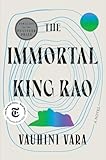 At year’s beginning I read Christopher Isherwood’s melancholy, exquisite, funny A Single Man and Goodbye to Berlin and was reminded that autofiction is not new. Vauhini Vara’s The Immortal King Rao lit me up with joy for its soaring ambition and panache, for its world-bending and its structural wisdom. It’s the unforgettable story of King Rao—child of Dalit coconut farmers, eventual global tech titan—and the meaning his daughter Athena must make of her life and his. I read these over mugs of green tea and lunches of leftover chicken peralen or Calicut-style biriyani: think rice layered through with crisped slivers of deep-fried onion, the sweetness of an errant golden raisin, bay leaf and cinnamon stick, intensely umami pressure-cooked meat.
At year’s beginning I read Christopher Isherwood’s melancholy, exquisite, funny A Single Man and Goodbye to Berlin and was reminded that autofiction is not new. Vauhini Vara’s The Immortal King Rao lit me up with joy for its soaring ambition and panache, for its world-bending and its structural wisdom. It’s the unforgettable story of King Rao—child of Dalit coconut farmers, eventual global tech titan—and the meaning his daughter Athena must make of her life and his. I read these over mugs of green tea and lunches of leftover chicken peralen or Calicut-style biriyani: think rice layered through with crisped slivers of deep-fried onion, the sweetness of an errant golden raisin, bay leaf and cinnamon stick, intensely umami pressure-cooked meat.
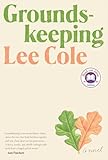
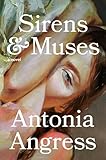

 It was a great year for debut novels and campus novels. In the phenomenal Groundskeeping by Lee Cole, I found a campus novel and love story for the age of Trump, and tbh for the ages. In this restrained, compassionate, lovely, and wise book, Cole creates an unforgettable portrait of his character Owen Callahan’s Kentucky. Reader, I cried. Alongside ketchup-dipped fries and very cold and dry martinis, I read Antonia Angress’s Sirens and Muses, which gives us bisexual excellence and (and bisexual chaos), art world hijinks, scenes of Occupy and protests, a love letter to Cajun country, and some of the more memorable scenes of making art I’ve encountered in a contemporary novel. I hooted over Elaine Hsieh Chou’s sharp and zany satire Disorientation, which dissects Orientalism, yellowface, and what it means to be, study, love, and make art as Other. Mark Prins‘s The Latinist, a feminist hat-tipping to the story of Daphne and Apollo, is a slow-burn suspenseful quest with the weather of a thriller and one of the better villains of the year. It kept me reading through the night.
It was a great year for debut novels and campus novels. In the phenomenal Groundskeeping by Lee Cole, I found a campus novel and love story for the age of Trump, and tbh for the ages. In this restrained, compassionate, lovely, and wise book, Cole creates an unforgettable portrait of his character Owen Callahan’s Kentucky. Reader, I cried. Alongside ketchup-dipped fries and very cold and dry martinis, I read Antonia Angress’s Sirens and Muses, which gives us bisexual excellence and (and bisexual chaos), art world hijinks, scenes of Occupy and protests, a love letter to Cajun country, and some of the more memorable scenes of making art I’ve encountered in a contemporary novel. I hooted over Elaine Hsieh Chou’s sharp and zany satire Disorientation, which dissects Orientalism, yellowface, and what it means to be, study, love, and make art as Other. Mark Prins‘s The Latinist, a feminist hat-tipping to the story of Daphne and Apollo, is a slow-burn suspenseful quest with the weather of a thriller and one of the better villains of the year. It kept me reading through the night.


 At a writing residency on Whidbey Island I ate meals lovingly prepared for my cohort—curried lentil soups, flaky salmon fillets, grain pilafs, chocolatey desserts—and wrote and read my heart out. It was there that I finished A Passage North by Anuk Arudpragasam. It stunned me with its slow, gorgeous prose; rangy and beautiful sentences throng together, creating the sensation of being enclosed in mist or a thrumming crowd. A standout of the year. Fierce Departures by the poet Dionne Brand and Fiona and Jane by the brilliant Jean Chen Ho moved and comforted me with their artistry.
At a writing residency on Whidbey Island I ate meals lovingly prepared for my cohort—curried lentil soups, flaky salmon fillets, grain pilafs, chocolatey desserts—and wrote and read my heart out. It was there that I finished A Passage North by Anuk Arudpragasam. It stunned me with its slow, gorgeous prose; rangy and beautiful sentences throng together, creating the sensation of being enclosed in mist or a thrumming crowd. A standout of the year. Fierce Departures by the poet Dionne Brand and Fiona and Jane by the brilliant Jean Chen Ho moved and comforted me with their artistry.
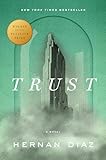



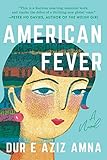
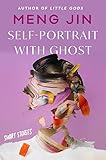 On the beaches and cobblestone streets of small-town Portugal I ate bacalhau in various preparations, most memorably á bras—think flaked cod, fried potatoes, white onions, and egg shaped into a little nest, lime-drenched ceviches, innumerable pasteis de nata. After a lifetime of militant tea drinking I became an espresso bitch. Amidst these culinary adventures I read Hernan Diaz’s Trust, Georgia O’ Keefe: A Biography by Roxana Robinson, and Jonathan Escoffery’s If I Survive You, which are each fantastic and enlivening. Back in New York, at Tilden, Riis, and Brighton, I ate Pan-soviet food or my friend’s insane zucchini and pasta salad–memorably doused in an electric-green basil and parsley oil–and read the thrilling X by Davey Davis, Dur e Aziz Amna’s bracing and memorable American Fever, and Meng Jin’s absolutely gorgeous Self-Portrait with Ghost.
On the beaches and cobblestone streets of small-town Portugal I ate bacalhau in various preparations, most memorably á bras—think flaked cod, fried potatoes, white onions, and egg shaped into a little nest, lime-drenched ceviches, innumerable pasteis de nata. After a lifetime of militant tea drinking I became an espresso bitch. Amidst these culinary adventures I read Hernan Diaz’s Trust, Georgia O’ Keefe: A Biography by Roxana Robinson, and Jonathan Escoffery’s If I Survive You, which are each fantastic and enlivening. Back in New York, at Tilden, Riis, and Brighton, I ate Pan-soviet food or my friend’s insane zucchini and pasta salad–memorably doused in an electric-green basil and parsley oil–and read the thrilling X by Davey Davis, Dur e Aziz Amna’s bracing and memorable American Fever, and Meng Jin’s absolutely gorgeous Self-Portrait with Ghost.
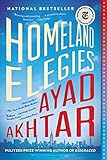

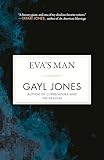

 Some of my reads were slow, spanning many weeks and meals. Ayad Akhtar’s Homeland Elegies astonished me with its brilliance, erudition, and formal invention—a whole genius, in my opinion. So did Gayl Jones’s 1975 debut Corregidora and her sophomore novel Eva’s Man, which left me discomfited and admiring. Tanaïs’s award-winning In Sensorium, structured like a perfume, was an inventive pleasure to read, and I felt grateful for their labor in bringing history to light, in making new forms for memoir. I adored Jamil Kochai’s The Haunting of Hajji Hotak. I will note here what has become clearer to me with every passing year—that writers of color are rarely celebrated for our innovations in artistry, versus the ethnographic capacities of our work.
Some of my reads were slow, spanning many weeks and meals. Ayad Akhtar’s Homeland Elegies astonished me with its brilliance, erudition, and formal invention—a whole genius, in my opinion. So did Gayl Jones’s 1975 debut Corregidora and her sophomore novel Eva’s Man, which left me discomfited and admiring. Tanaïs’s award-winning In Sensorium, structured like a perfume, was an inventive pleasure to read, and I felt grateful for their labor in bringing history to light, in making new forms for memoir. I adored Jamil Kochai’s The Haunting of Hajji Hotak. I will note here what has become clearer to me with every passing year—that writers of color are rarely celebrated for our innovations in artistry, versus the ethnographic capacities of our work.





 My own book All This Could Be Different came out in August and large parts of my mind more or less dissolved into goo. I read a lot of poetry and nonfiction in the months after that. I ate Macosa Trattoria’s oxtail pappardelle, downed many oysters and doubles, ate god-level meen vevichathu at Semma, housed an Ursula’s burrito, and read, more slowly and haltingly than before, with a greater sense of sympathy and solidarity, by which I maybe mean, a heightened sense of any writer’s vulnerability in sharing work at all. How Far The Light Reaches by Sabrina Imbler was a total standout, alive, intelligent, luminescent as a creature of the deep. Amia Srinivasan’s The Right To Sex gave me the pleasure of watching a goddamn Mind At Work!! Stella Wong’s Spooks, Janelle Affiong Effiwatt’s Food & Flowers, I Watch The Boughs by Emily Lee Luan, Customs by Solmaz Sharif, and Togetherness by Wo Chan, were collectively, some of the best poetry I’d read in many years, and I am obsessed by them.
My own book All This Could Be Different came out in August and large parts of my mind more or less dissolved into goo. I read a lot of poetry and nonfiction in the months after that. I ate Macosa Trattoria’s oxtail pappardelle, downed many oysters and doubles, ate god-level meen vevichathu at Semma, housed an Ursula’s burrito, and read, more slowly and haltingly than before, with a greater sense of sympathy and solidarity, by which I maybe mean, a heightened sense of any writer’s vulnerability in sharing work at all. How Far The Light Reaches by Sabrina Imbler was a total standout, alive, intelligent, luminescent as a creature of the deep. Amia Srinivasan’s The Right To Sex gave me the pleasure of watching a goddamn Mind At Work!! Stella Wong’s Spooks, Janelle Affiong Effiwatt’s Food & Flowers, I Watch The Boughs by Emily Lee Luan, Customs by Solmaz Sharif, and Togetherness by Wo Chan, were collectively, some of the best poetry I’d read in many years, and I am obsessed by them.
 Sometime in November, I stopped recording the books I read or anything I ate (see: mind: become goo.) I began rereading T.S. Eliot’s poems and plays, and began Thoppil Basi’s Ningalenne Communistakki. As with other things, it turned out I needn’t have worried too much about losing my love of reading. 2022 was a bumper crop of simply great books. I’m not sorry, though, for asking myself at the beginning of it what I wanted, ultimately, and to have the answer be pleasure, on plate and on page. I wanted something delicious, and Reader, I got it.
Sometime in November, I stopped recording the books I read or anything I ate (see: mind: become goo.) I began rereading T.S. Eliot’s poems and plays, and began Thoppil Basi’s Ningalenne Communistakki. As with other things, it turned out I needn’t have worried too much about losing my love of reading. 2022 was a bumper crop of simply great books. I’m not sorry, though, for asking myself at the beginning of it what I wanted, ultimately, and to have the answer be pleasure, on plate and on page. I wanted something delicious, and Reader, I got it.
The post A Year in Reading: Sarah Thankam Mathews appeared first on The Millions.








